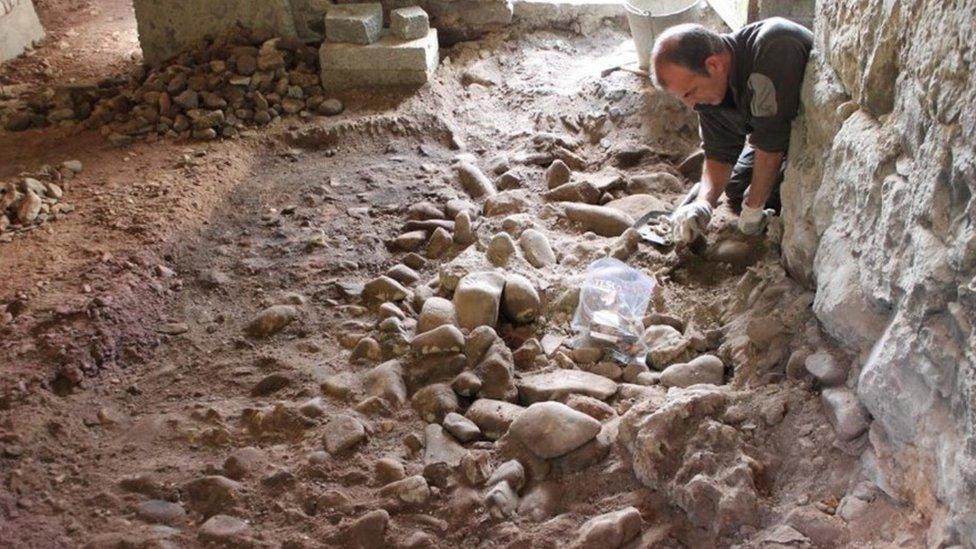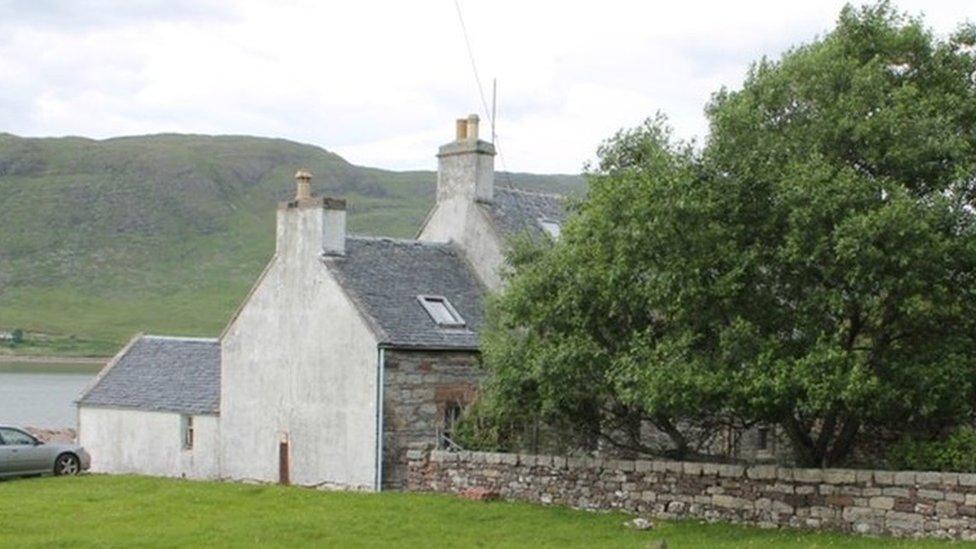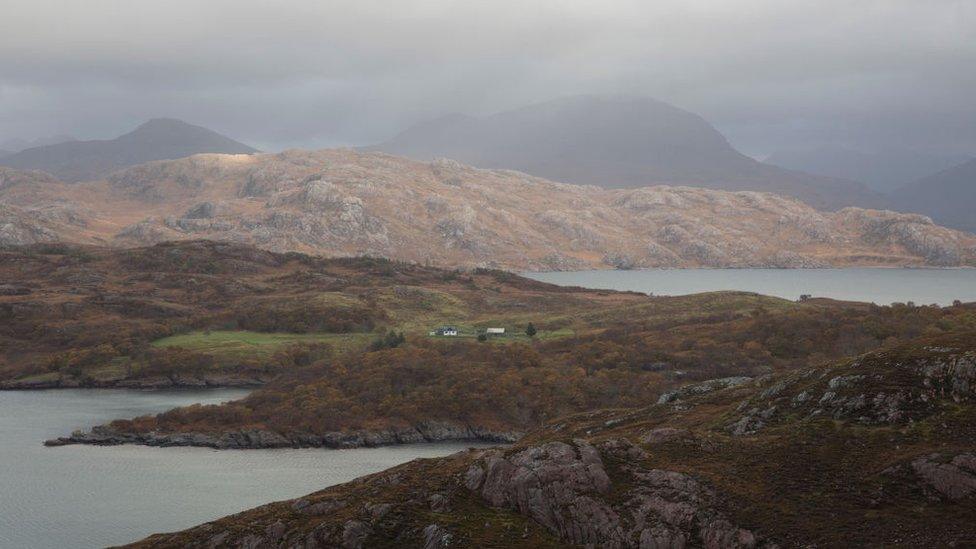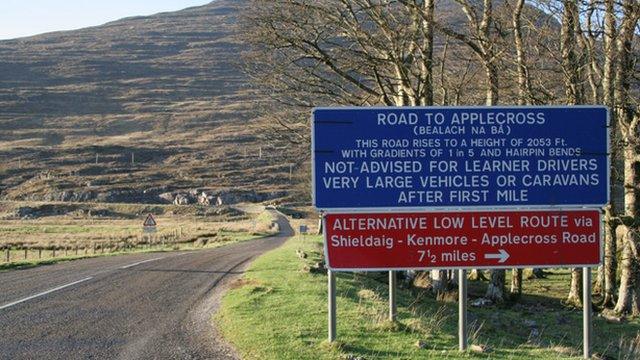Bones under Highlands kitchen floor are Iron Age burial site
- Published

The bones were excavated in 2015
Skeletal remains of six men found under a kitchen floor in the Highlands have been revealed to date back to Scotland's Iron Age.
The discovery below an estate office in Applecross was initially thought to be an 18th Century murder scene.
But carbon dating has confirmed the bones are about 2,000 years old.
Archaeologist Cathy Dagg said the find was significant, because it is the first Iron Age burial site to be found on the west Highland coast.
"Iron Age burials had not been found previously," she said.
"If people were buried here the remains would not have survived in the acidic soil."
Ms Dagg worked on the excavation of the bones in 2015 and has continued to investigate the site.
Burials had been found north and south of Applecross, preserved in the soils of sandy coastal meadows known as machair.

The burial site was under the kitchen of an Applecross Estate office

The burial site is significant for the west Highlands
The reason the Applecross bones survived was because the bodies were buried in an area of "storm beach", comprising cobbled stones which had helped to keep the remains dry.
When the Applecross estate office was built in the 19th Century this further assisted in protecting the site from the elements.
Ms Dagg said people would have sat in the kitchen eating breakfast, unaware of what lay under the floor.
The bones, found after floor boards were ripped up, included three mandibles, initially leading archaeologists to believe the discovery involved the remains of three people.
Analysis revealed other pieces of bone belonged to another three men, with all six having lived in the Iron Age.
In Scotland, this period began around 800BC.
Ms Dagg will give a talk for Applecross Heritage Centre on the latest findings in Applecross Hall on Tuesday 28 February from 19:30.
Related topics
- Published13 July 2015

- Published10 July 2015
